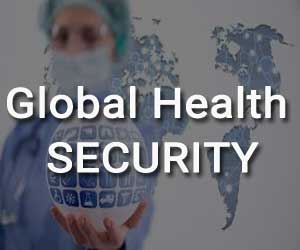- Home
- Medical news & Guidelines
- Anesthesiology
- Cardiology and CTVS
- Critical Care
- Dentistry
- Dermatology
- Diabetes and Endocrinology
- ENT
- Gastroenterology
- Medicine
- Nephrology
- Neurology
- Obstretics-Gynaecology
- Oncology
- Ophthalmology
- Orthopaedics
- Pediatrics-Neonatology
- Psychiatry
- Pulmonology
- Radiology
- Surgery
- Urology
- Laboratory Medicine
- Diet
- Nursing
- Paramedical
- Physiotherapy
- Health news
- Fact Check
- Bone Health Fact Check
- Brain Health Fact Check
- Cancer Related Fact Check
- Child Care Fact Check
- Dental and oral health fact check
- Diabetes and metabolic health fact check
- Diet and Nutrition Fact Check
- Eye and ENT Care Fact Check
- Fitness fact check
- Gut health fact check
- Heart health fact check
- Kidney health fact check
- Medical education fact check
- Men's health fact check
- Respiratory fact check
- Skin and hair care fact check
- Vaccine and Immunization fact check
- Women's health fact check
- AYUSH
- State News
- Andaman and Nicobar Islands
- Andhra Pradesh
- Arunachal Pradesh
- Assam
- Bihar
- Chandigarh
- Chattisgarh
- Dadra and Nagar Haveli
- Daman and Diu
- Delhi
- Goa
- Gujarat
- Haryana
- Himachal Pradesh
- Jammu & Kashmir
- Jharkhand
- Karnataka
- Kerala
- Ladakh
- Lakshadweep
- Madhya Pradesh
- Maharashtra
- Manipur
- Meghalaya
- Mizoram
- Nagaland
- Odisha
- Puducherry
- Punjab
- Rajasthan
- Sikkim
- Tamil Nadu
- Telangana
- Tripura
- Uttar Pradesh
- Uttrakhand
- West Bengal
- Medical Education
- Industry
US comes up with strategy to Detect, Respond to Health security threats globally

Asserting that America is creating a safer world by utilizing collective global action to combat global health security threats, the White House said under this Strategy, the US will use bilateral, regional, and multilateral engagements to encourage countries to make health security a national priority.
Washington: The US government has come up with a first of its kind strategy to prevent, detect and respond to threats from infectious diseases occurring naturally or accidentally, in an effort to help improve the world's ability to stop and contain deadly outbreaks before they spread between countries.
The Global Health Security Strategy, unveiled on Thursday, defines the actions the administration will take by adopting a whole-of-government approach to health security and leveraging the strengths of different federal departments, agencies and funding streams, the White House said.
The strategy outlines a coordinated US approach that focuses on three interrelated goals: strengthen partner country global health security capacities, increase international support for global health security and a homeland prepared and resilient against global health threats, the official said.
The White House said that the US is working with international partners to help improve the world's ability to stop and contain infectious disease outbreaks before they spread between countries.
Under the new Strategy, the country will work to ensure that every partner country has a plan to achieve self-reliance in the critical area of health security.
Supporting the Global Health Security Agenda as a mechanism to accelerate progress addressing infectious disease threats, the White House said that under this new strategy, the US will assist international partners to help improve their performance in priority areas.
Read Also: Ebola Outbreak in DR Congo; 26 deaths in single day
Nations, international organizations and the private sector established the Global Health Security Agenda, laying out specific targets to reduce infectious disease threats, it said.
Using this process, the United States will assist our international partners to help improve their performance in priority areas. We will encourage countries to strengthen their technical capacities and will support select partner countries in areas such as emergency preparedness and disease surveillance, the White House said.
Asserting that America is creating a safer world by utilizing collective global action to combat global health security threats, the White House said under this Strategy, the US will use bilateral, regional, and multilateral engagements to encourage countries to make health security a national priority.
The United States will coordinate with partner governments, nongovernmental organizations and the private sector to promote sustainable financing to build health security capacity," it said.
The United States will push for a transparent and accountable framework to encourage donors and countries to fulfil their financial commitments to global health security, it said.
Under the new strategy, the Centre for Disease Control (CDC) will increase its ability to monitor threats globally from headquarters and provide a rapid response through the deployment of staff across the agency. CDC has developed the Global Emergency Alert and Response Service to do that.
We monitor between, on average, 35 to 45 outbreaks a day through event-based surveillance, and support emergency deployments to respond to these outbreaks or public health events, such as natural disasters or displaced populations due to conflict or strife, the official said.
CDC has rostered over 500 deployers that have provided nearly 17,000 person days of support for response activities. This includes staff who have been deployed to Democratic Republic of Congo (DRC), surrounding countries and WHO headquarters to assist with the response to Ebola outbreak in DRC now, the official said.
Medical Dialogues Bureau consists of a team of passionate medical/scientific writers, led by doctors and healthcare researchers. Our team efforts to bring you updated and timely news about the important happenings of the medical and healthcare sector. Our editorial team can be reached at editorial@medicaldialogues.in.


